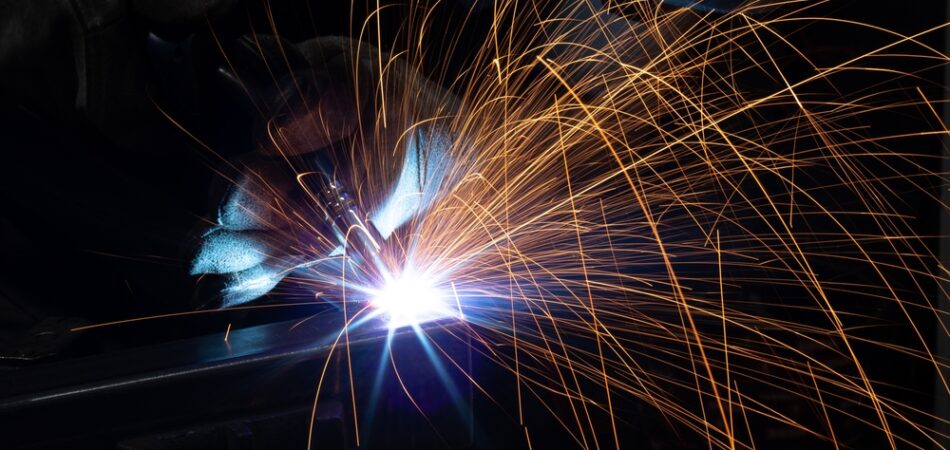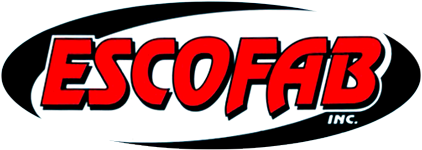
When embarking on a new project, especially in construction, manufacturing, or custom design, choosing the right materials and processes is essential for success. Metal fabrication has become an increasingly popular option due to its efficiency and durability benefits. In this article, we’ll explore how metal fabrication can enhance the quality, longevity, and functionality of your projects, from initial planning to the final product.
What is Metal Fabrication?
Metal fabrication is the process of creating metal structures and components by cutting, bending, welding, and assembling various metals, such as steel, aluminum, and copper. This process can be applied to produce everything from architectural structures to machine components and custom parts tailored to specific needs. With advanced techniques, metal fabrication can be customized to meet the unique demands of each project.
Metal fabrication brings precision, strength, and flexibility to projects, making it an ideal choice for industries where these qualities are critical. Custom fabrication efficiency, paired with the unmatched durability of metal, makes it an essential technique for many applications, providing not only practical advantages but also substantial long-term savings.
The Efficiency of Metal Fabrication in Projects
Custom Fabrication Efficiency: Saving Time and Resources
One of the greatest advantages of metal fabrication is its capacity to streamline processes, saving both time and resources. By allowing for precise and customized design, metal fabrication for projects reduces material waste and minimizes the need for extensive alterations or repairs down the line. Custom fabrication efficiency is a huge advantage when deadlines are tight or when specific design elements are required to meet regulatory or aesthetic standards.
Metal fabricators utilize tools such as CNC (Computer Numerical Control) machines and laser cutting, which automate the process and ensure each component is crafted to exact specifications. This level of precision dramatically reduces the time spent on manual adjustments and assembly, as the parts fit perfectly the first time. Furthermore, many fabrication shops offer design services, providing expertise that helps streamline the project from conception through to completion.
Shorter Turnaround Times
Because metal fabrication relies on standardized processes, the time required to complete a project can often be significantly reduced. Techniques such as automated cutting and welding allow for rapid completion of tasks, contributing to shorter project timelines. This is especially important in industries like construction and manufacturing, where delays can lead to cost overruns and other complications. By choosing metal fabrication, you can often ensure a faster and smoother progression through each phase of your project, from design to installation.
Streamlined Project Management and Reduced Labor Costs
Custom metal fabrication allows for a more streamlined approach to project management. With highly precise specifications, fabricators can deliver pre-assembled parts or modular sections, which can be installed on-site with minimal effort. This minimizes labor costs as fewer people are needed on the job site to handle adjustments, reworks, or custom fits. The reduced labor requirements and improved workflow can make a substantial difference in both project timelines and budget allocations.
Enhancing Durability in Metal Fabrication Projects
The Role of Material Selection in Durability
One of the key aspects of durability in metal fabrication is the choice of material. Metals like steel and aluminum are known for their strength and resilience, making them ideal for high-stress environments. Steel, for example, is renowned for its tensile strength and is resistant to wear and tear, which is why it’s commonly used in structural applications. Aluminum, on the other hand, offers a lighter alternative with strong corrosion resistance, making it perfect for outdoor applications and areas prone to moisture.
The right metal can withstand the demands of the project environment, from heavy loads to exposure to the elements, ensuring the fabricated product remains durable for years. Durability in metal fabrication depends not only on the metal itself but also on the quality of the fabrication process. With proper planning and high-quality craftsmanship, metal fabrication can create products that require minimal maintenance and offer exceptional longevity.
Protection Against Environmental Damage
Metal fabrication often incorporates finishes or coatings that enhance the metal’s natural durability. Coatings such as powder coating, galvanizing, and anodizing protect against corrosion, UV exposure, and other environmental factors. These protective layers are especially beneficial in harsh climates or industrial settings where metal structures might be exposed to chemicals, saltwater, or extreme temperatures.
By preventing rust, corrosion, and other types of wear, these protective measures extend the lifespan of metal structures, making them highly cost-effective in the long run. Moreover, since protective coatings can be applied in various colors and finishes, they can also contribute to the aesthetic appeal of your project without compromising durability.
Reduced Maintenance Requirements
The strength and resilience of fabricated metal components mean they require less maintenance compared to materials like wood or plastic. Wood, for instance, can warp, rot, or splinter over time, especially when exposed to moisture. Plastics, on the other hand, may degrade under prolonged sunlight or heat exposure. Metal, when fabricated and treated properly, avoids many of these issues, leading to fewer repairs and replacements over the project’s lifespan.
For industries where downtime can be costly, such as manufacturing or construction, reduced maintenance is a significant benefit. Projects built with durable metal components are often easier to manage, require fewer service interruptions, and maintain functionality for a longer period.
Applications of Metal Fabrication in Various Industries
Construction and Infrastructure
In the construction industry, metal fabrication is a cornerstone due to its durability, versatility, and ease of installation. Steel beams, columns, and framework are commonly used to create the structural skeleton of buildings, bridges, and industrial facilities. These components offer unmatched strength-to-weight ratios, allowing for taller, safer, and more resilient structures.
Custom metal fabrication is also prevalent in infrastructure projects, such as roadways, tunnels, and airports. Here, metal components are often used for their load-bearing capabilities and resilience to high traffic and heavy use. Metal’s strength and resistance to environmental factors make it ideal for these large-scale, long-term projects.
Automotive and Transportation
The automotive and transportation industries also benefit from metal fabrication. Automotive components such as chassis, engine parts, and suspension systems are often fabricated from steel or aluminum due to their strength and lightweight properties. Similarly, in the aerospace sector, custom metal fabrication plays a key role in creating reliable, lightweight parts that can withstand high-stress environments.
The transportation industry also relies on metal fabrication to create parts for trains, buses, and other forms of mass transit. These components need to be durable enough to withstand constant use, vibrations, and environmental factors while remaining efficient and safe.
Renewable Energy and Environmental Engineering
Metal fabrication is essential in the renewable energy sector, where components for wind turbines, solar panels, and hydroelectric dams require durability and precision. These installations are often located in challenging environments, where they are exposed to varying weather conditions and extreme stresses. Durable metal components ensure that renewable energy projects remain reliable and efficient over time, maximizing their environmental and economic benefits.
Customized Metal Fabrication for Unique Project Needs
Metal fabrication for projects also extends to creating highly customized components tailored to specific applications. Custom fabrication allows for the development of parts and structures that are not available off-the-shelf, enabling unique designs and specialized solutions. From custom machinery in manufacturing to personalized architectural designs, custom metal fabrication enables innovation while providing the practical advantages of durability and efficiency.
Choosing the Right Metal Fabrication Partner for Your Project
Key Qualities to Look For
Selecting the right metal fabrication partner is critical to ensure the success of your project. Look for a fabricator with a proven track record, advanced equipment, and an understanding of your industry’s specific needs. Skilled fabricators should offer design consultations and be willing to work with you to ensure each component is produced to exact specifications.
Experience in custom fabrication efficiency and an emphasis on durability in metal fabrication are also essential. Your fabricator should understand which materials and processes are best suited for your project and provide solutions that enhance both durability and efficiency.
Benefits of Partnering with a Full-Service Metal Fabricator
Working with a full-service metal fabricator can offer numerous advantages, including streamlined project management, reduced costs, and the convenience of a single point of contact for all fabrication needs. Full-service fabricators often provide design, engineering, manufacturing, and assembly services under one roof, which enhances project efficiency and ensures that each phase is handled with expertise and attention to detail.
Why Metal Fabrication is the Ideal Choice for Efficient, Durable Projects
Metal fabrication offers a powerful combination of efficiency and durability, making it an ideal choice for many industries. Custom fabrication efficiency allows projects to be completed on time and within budget, while the durability of metal ensures long-lasting, low-maintenance structures and components. By choosing metal fabrication for projects, businesses and builders alike can benefit from reduced costs, minimized labor requirements, and a finished product that stands the test of time.
Whether you’re working on a large construction project or developing specialized components for manufacturing, metal fabrication can provide the quality, reliability, and efficiency you need to succeed. Embrace the advantages of metal fabrication in your next project, and experience the benefits of this robust, adaptable, and long-lasting material.
Need a Machine Shop in Atmore, AL?
Escofab Inc. has been dedicated to providing quality machining and fabrication since 1981! Here at Escofab Inc. we utilize fabricating and machining to your specifications. We work to fit your needs and ensure customer satisfaction. Our friendly and informative staff are eager to assist you! Give us a call or come on in today; walk-ins welcome!
